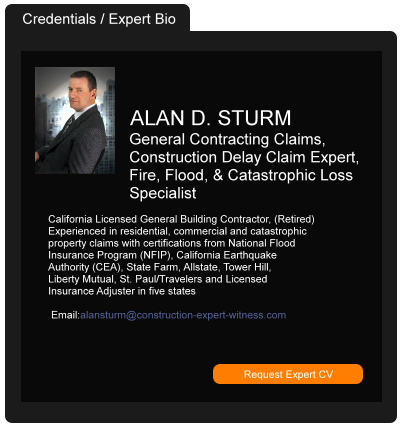Washington Builders Right To Repair Current Law Summary:
Current Law Summary: (SB 5536) The legislature passed a contractor protection bill that reduces contractors' exposure to lawsuits to six years from 12, and gives builders seven "affirmative defenses" to counter defect complaints from homeowners. Claimant must provide notice no later than 45 days before filing action; within 21 days of notice of claim, "construction professional" must serve response; claimant must accept or reject inspection proposal or settlement offer within 30 days; within 14 days following inspection, construction pro must serve written offer to remedy/compromise/settle; claimant can reject all offers; statutes of limitations are tolled until 60 days after period of time during which filing of action is barred under section 3 of the act. This law applies to single-family dwellings and condos.
Building Expert Contractors Licensing
Guidelines Seattle Washington
A license is required for plumbing, and electrical trades. Businesses must register with the Secretary of State.
Association Directory
Local # 4955
335 116th Ave SE
Bellevue, WA 98004
http://www.masterbuildersinfo.com
Seattle Washington Building Expert 10/ 10
Home Builders Association of Kitsap County
Local # 4944
5251 Auto Ctr Way
Bremerton, WA 98312
http://www.kitsaphba.com
Seattle Washington Building Expert 10/ 10
Home Builders Association of Spokane
Local # 4966
5813 E 4th Ave Ste 201
Spokane, WA 99212
http://www.shba.com
Seattle Washington Building Expert 10/ 10
Home Builders Association of North Central
Local # 4957
PO Box 2065
Wenatchee, WA 98801
http://www.nchba.cc
Seattle Washington Building Expert 10/ 10
MBuilders Association of Pierce County
Local # 4977
PO Box 1913 Suite 301
Tacoma, WA 98401
http://www.mbapierce.com
Seattle Washington Building Expert 10/ 10
North Peninsula Builders Association
Local # 4927
PO Box 748
Port Angeles, WA 98362
Seattle Washington Building Expert 10/ 10
Jefferson County Home Builders Association
Local # 4947
PO Box 1399
Port Hadlock, WA 98339
http://www.jeffcohomebuilders.com
Seattle Washington Building Expert 10/ 10
Building Expert News and Information
For Seattle Washington
Boston’s Tunnel Project Plagued by Water
Is the Construction Industry Actually a Technology Hotbed?
Congratulations to Partner Nicole Whyte on Being Chosen to Receive The 2024 ADL’s Marcus Kaufman Jurisprudence Award
The Shifting Sands of Alternative Dispute Resolution
Condominiums and Homeowners Associations Remain Popular Housing Choices for U-S Homeowners
Travelers Insurance Sues Chicago for $26M in Damages to Willis Tower
Never, Ever, Ever Assume! (Or, How a Stuck Shoe is Like a Construction Project Assumption)
Illinois Joins the Pack on Defective Construction as an Occurrence
Brief Discussion of Enforceability of Anti-Indemnity Statutes in California
Toolbox Talk Series Recap – Arbitration Motion Practice
How You Plead Allegations to Trigger Liability Insurer’s Duties Is Critical
Determination That Title Insurer Did Not Act in Bad Faith Vacated and Remanded
Deck Collapse Raises Questions about Building Defects
Comply with your Insurance Policy's Conditions Precedent (Post-Loss Obligations)
Too Costly to Be Fair: Texas Appellate Court Finds the Arbitration Clause in a Residential Construction Contract Unenforceable
Insured Survives Motion for Summary Judgment in Collapse Case
Be Careful With Construction Fraud Allegations
A Compilation of Quirky Insurance Claims
North Carolina Should Protect Undocumented Witnesses to Charlotte Scaffolding Deaths, Unions Say
Manhattan Home Sales Rise at Slower Pace as Prices Jump
Traub Lieberman Partner Greg Pennington Wins Summary Judgment in Favor of Property Owner
Construction Law Client Alert: Hirer Beware - When Exercising Control Over a Job Site’s Safety Conditions, You May be Held Directly Liable for an Independent Contractor’s Injury
Analysis of the “owned property exclusion” under Panico v. State Farm
Court of Appeals Finds Additional Insured Coverage Despite “Care, Custody or Control” Exclusion
DoD Issues Guidance on Inflation Adjustments for Contractors
2024 Construction Law Update
University of Tennessee’s New Humanities Building Construction Set to Begin
South Carolina Homeowners May Finally Get Class Action for Stucco Defects
Improperly Installed Flanges Are Impaired Property
Insurers Must Defend Allegations of Faulty Workmanship
Contract Void Ab Initio: Key Insights into the KBR vs. Corps of Engineers Affirmative Defense
The Rise of Modular Construction – Impacts for Consideration
Conspirators Bilked Homeowners in Nevada Construction Defect Claims
Traub Lieberman Partner Katie Keller and Associate Steven Hollis Obtain Summary Judgment Based on Plaintiff’s Failure to Comply with Policy Conditions
Why Is It So Hard to Kill This Freeway?
Business Risk Exclusions Bar Faulty Workmanship Claim
Balancing Cybersecurity Threats in Smart Cities: Is the Potential Convenience of “Smart” Intersections Worth the Risk?
Traub Lieberman Elects New Partners for 2020
Gary Bague Elected Chairman of ALFA International’s Board of Directors
Force Majeure Recommendations
New World Cup Stadiums Failed at their First Trial
Los Angeles Is Building a Future Where Water Won’t Run Out
Ahlers & Cressman’s Top 10 Construction Industry Contract Provisions
How Long Does a Civil Lawsuit Take?
Arkansas: Avoiding the "Made Whole" Doctrine Through Dépeçage
Lewis Brisbois Moves to Top 15 in Law360 2022 Diversity Snapshot
Pennsylvania Mechanics’ Lien “Waivers” and “Releases”: What’s the Difference?
Should CGL Insurer have Duty to Defend Insured During Chapter 558 Notice of Construction Defects Process???
Thank You for 17 Years of Legal Elite in Construction Law
Architect Plans to 3D-Print a Two-Story House


































































